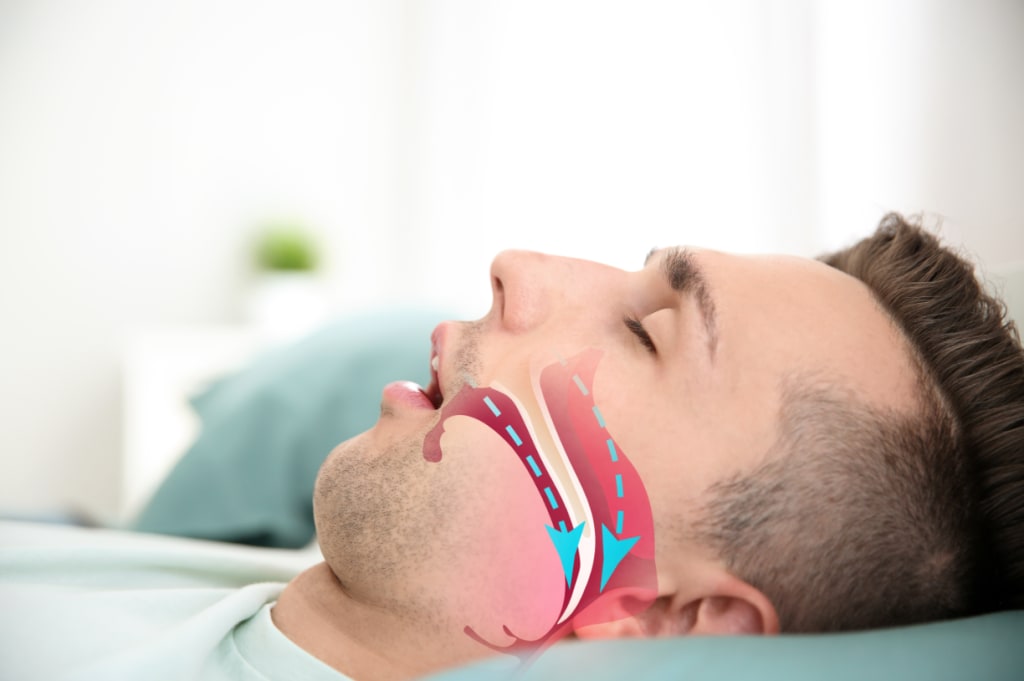12 Signs Your Sleep Apnea Is Ruining Your Health
Obstructive sleep apnea is a sleep condition that affects 22 million Americans. The condition requires immediate medical attention as it can lead to more serious health problems. Given that it’s not uncommon, it’s important to know the signs of obstructive sleep apnea. The hallmark of sleep apnea is loud snoring that’s accompanied by gasping and choking during sleep.

Sleep apnea is a type of sleep-disorder breathing that can raise the risk of serious health issues like heart attacks, type 2 diabetes, and strokes. Here are some signs that sleep apnea is affecting your health:
1. You have poor attention span
If you’re constantly distracted and sleepy, this could be sleep apnea. Inability to pay attention can lead to serious consequences and increase the risk for motor vehicle accidents.
2. You have poor coordination and motor skills
Sleep is essential to motor skill learning. Therefore, sleep apnea can hinder you from getting and retaining motor skills. A quality night’s sleep usually improves new motor skills. According to a 2014 study, people with obstructive sleep apnea don’t experience the improvement of motor skills that people without the condition do.
This sign of sleep apnea is characterized by the inability to learn a new skill, like playing the piano or knitting a scarf. However, sleep apnea sufferers might also see negative changes to their coordination.
3. Your blood glucose levels are high
High blood sugar levels, also called hyperglycemia, might indicate that the body isn’t effectively converting glucose into energy. An increase in blood glucose levels is one of the lesser-known signs of obstructive sleep apnea.
There is a connection between increased blood sugar levels and obstructive sleep apnea in people with type 2 diabetes. High blood glucose is also a hallmark of pre-diabetes and diabetes and can contribute to complications to the cardiovascular system, kidneys, and eyes. Treating sleep apnea in time will help you prevent hyperglycemia and its potential health risks.
4. You suffer from metabolic syndrome
Metabolic syndrome is a disorder that’s characterized by a group of unhealthy symptoms that occur together. These include hypertension, high blood glucose, high cholesterol, high triglycerides, and excess fat in the abdominal area.
Metabolic syndrome can provoke many health conditions like cardiovascular diseases and type 2 diabetes. Talk to your healthcare provider about metabolic syndrome (and metabolic health in general) and obstructive sleep apnea to understand these conditions and their health effects better.
5. You experience anxiety
Since most people with obstructive sleep apnea have sleep problems, they are at high risk of anxiety which can actually make it much more difficult to get enough sleep. More than 50 percent of people with sleep apnea also experience anxiety.
6. You have a poor memory
Just like concentration, memory is also affected by obstructive sleep apnea. If left ignored, sleep apnea can actually lead to Alzheimer’s disease. According to a 2017 study, this type of sleep-disordered breathing contributes to the build-up of plaque in the brain that’s a marker for the condition.
7. You have frequent headaches
Headaches that tend to occur in the morning are a common sign of sleep apnea. The condition contributes to low oxygen levels in the blood and to the brain, that’s why experts suggest it can trigger headaches. For women, obstructive sleep apnea is more common than many people realize. And symptoms in women aren’t always the same as men’s. Women might be less likely to snore loudly, and more likely to have mood issues and frequent headaches.
8. You suffer from depression
Depression is another side effect of obstructive sleep apnea that surprises people. The connection between sleep and mood is difficult. Insufficient sleep leads to mood issues that in turn can interfere with sleep.
According to a recent study, more than 46 percent of people with obstructive sleep apnea experienced depressive symptoms. Depression might be a more common sign of sleep apnea in women than in men.
9. You notice unexplained weight gain
Having extra pounds increases your risk of sleep apnea and untreated apnea can also make you pack on additional pounds. Losing weight is one of the first and best ways for improving all types of sleep-disordered breathing. If you gain weight, especially in combination with other sleep apnea symptoms, ask your healthcare provider about testing.
10. You have an irregular heartbeat
If you experience a rapid or irregular heartbeat you shouldn’t ignore it. Arrhythmias can be provoked by multiple factors such as underactive thyroid, anxiety, dehydration, and sleep apnea. According to recent research, people with sleep apnea are at increased risk for atrial fibrillation, the most common type of arrhythmia.
11. You have daytime fatigue
Sleep apnea interrupts normal breathing as well as sleep. Difficulty breathing and episodes of apnea provoke awakenings that pull you out of sound sleep, again and again over the course of a night. You may not even remember these awakenings, but you’ll feel it in excessive tiredness and fatigue that you just can’t get rid of, and that interferes with your performance and your quality of life.
12. You have high blood pressure
If your blood pressure is too high, it might indicate sleep apnea. One in five adults suffers from at least a mild form of obstructive sleep apnea, according to the American Heart Association.
The connection between high blood pressure and sleep apnea is strong, and hypertension raises your risk of heart disease and stroke. But the good news is that treating sleep apnea in time can normalize blood pressure and lower your risks for cardiovascular diseases.
About the Creator
Amelia Grant
I am journalist, and blogger.






Comments
There are no comments for this story
Be the first to respond and start the conversation.